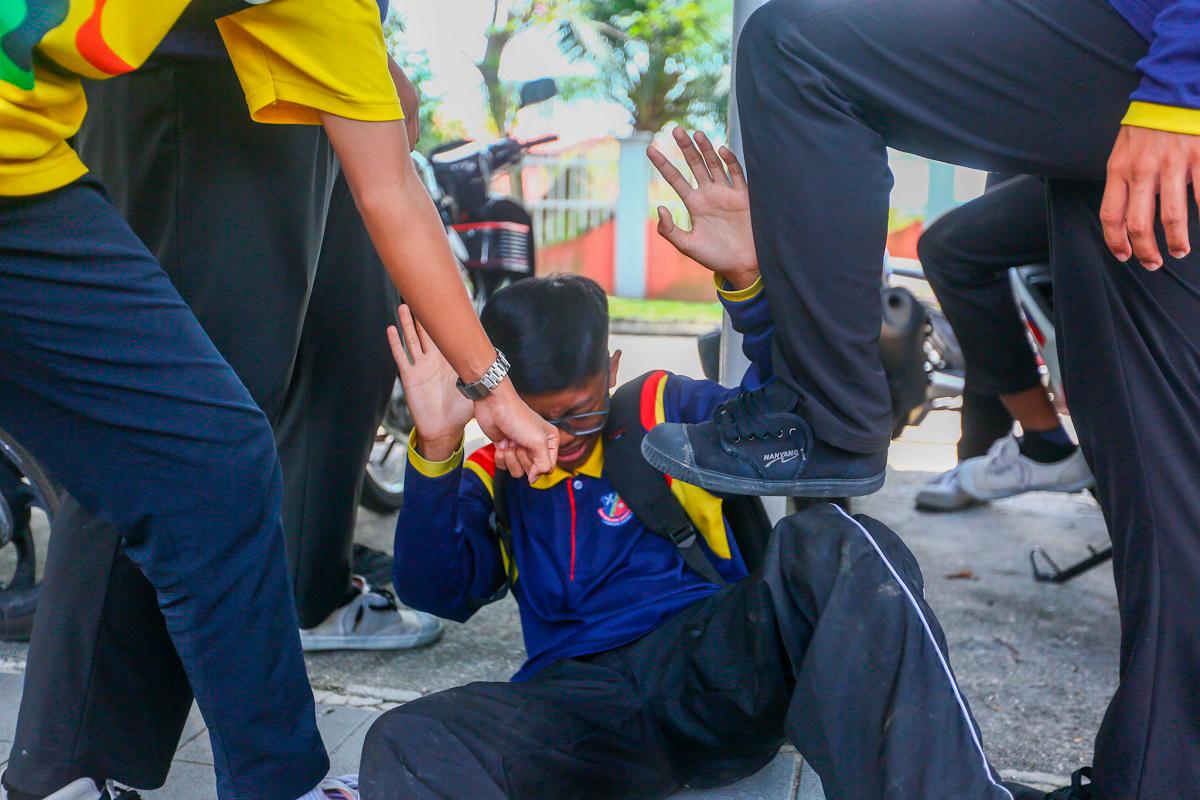PETALING JAYA: The Education Ministry directive for schools to recite daily chants of “Kami Benci Buli” (We Hate Bullying) has drawn mixed reactions from experts, who warn that symbolic gestures alone may not be enough to address the deep-rooted problem.
Universiti Kebangsaan Malaysia education expert Dr Anuar Ahmad described the move as reactive.
“From an educational perspective, this is not effective. We’re not talking about chanting after a bullying incident and then forgetting about it.
“Will these chants continue for years? If bullying is not managed properly, it will persist. Chanting is not a sustainable approach,” he said.
Anuar added that chants may serve as an immediate, visible action but cannot replace comprehensive measures.
He said weak enforcement and inconsistent monitoring often allow bullying to continue.
“I prefer sustainable action that builds a culture in which students truly understand bullying is wrong, not just because of a chant,” he said.
He recommended installing CCTVs at all schools, especially in hidden areas, hiring full-time wardens in hostels and creating a School Well-Being Index to track safety, student health and facilities.
Malaysia could learn from Australia’s evidence-based approach, which combines clear rules, guidelines and modules to reduce bullying rates, he added.
Parents Action Group for Education chairman Datin Noor Azimah Abdul Rahim agreed chants alone could be counterproductive.
“A daily chant on its own won’t reduce bullying in a durable way. Done clumsily, it can trivialise the problem or trigger pushback,” she said.
Noor Azimah added that slogans and pledges rarely work unless they are part of a whole-school programme with trained staff, clear procedures and data tracking.
“A rote call-and-response can become a joke, signalling that the adults are ‘doing something’ while nothing changes.
“Mandated moral messaging can provoke resistance, especially among older students,” she said.
Instead of symbolic gestures, she urged schools to have clear playbooks for staff, students and parents, activate bystanders and embed routines to encourage intervention and ensure safe reporting systems with rapid response.
She also called for targeted measures in boarding schools, such as audits, wardens and hotspot mapping, as well as coaching for staff to better detect and respond to bullying.
University of Nottingham Malaysia associate professor Dr Siti Khadijah Zainal Badri said from a psychological perspective, chants have very limited effect in preventing or changing student behaviour, particularly in extreme cases causing serious physical or psychological harm.
“It may serve as a symbolic kickstart or a daily reminder, but chants alone rarely solve entrenched bullying problems or extreme individual behaviour,” she said.
She warned that without strong messaging and proper systems to address or punish actual bullying, chants could even have unintended consequences.
“There is a possibility that chants can turn into teasing or mockery, especially if not backed by strong measures,” she said.
On whether repetitive chanting could cause “compassion fatigue” or desensitisation, she said it depends on how well the message is reinforced.
Siti Khadijah stressed that anti-bullying efforts must address underlying causes such as family environment, peer influence and self-esteem rather than relying on public declarations.
She called for stronger policies, accessible interventions for those showing early signs of bullying tendencies, clear reporting and handling procedures, and harsher consequences for offenders.
The Education Ministry has yet to outline how chants will be integrated with other anti-bullying measures.









